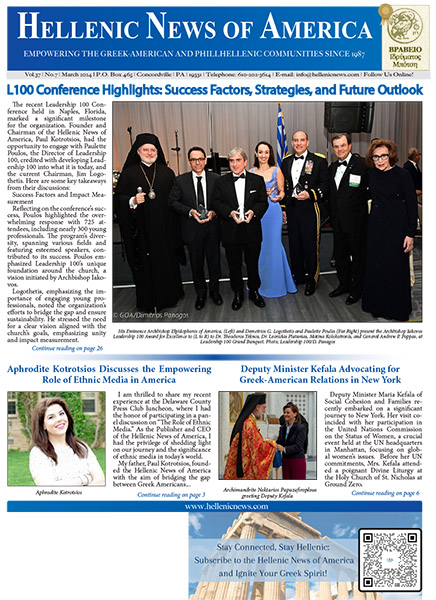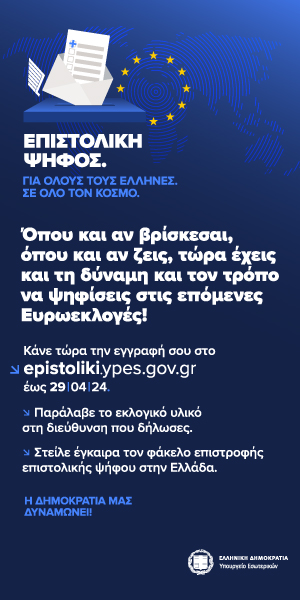What role did the Greek communities of Asia Minor, Western Anatolia, play in the 1821 Greek Revolution? Their role is ignored, because of the loss of their communities in 1922. Vasiliki Filiotis, President of the Hellenic Paideia of America, Inc., had in her journal book at the “The 200th Anniversary of the 1821 Greek Revolution: Honoring the Memory of the Heroes of 1821”, an exceptional article. “The Contribution of the Mikrasiates to the Revolution of the Nation” by the VOURLIOTES ASSOCIATION OF ASIA MINOR MARCH 27, 2015, is amazing.
“The historiography of the Revolution of 1821 almost ignores the participation of Asia Minor in the National Struggle,” points out the article.” The Greek Revolution was not a local historical event, Peloponnesian, Roumeli or island. It was a Pan-Hellenic uprising, in which all Greeks participated, offering what everyone could, every place, every Roman of the rest of Greece or of the Diaspora. The Ionians, the Thracian-Macedonians, the Cretans, the Dodecanese, the Constantinople, the Cypriots and even the Greeks of Corsica participated. The Greeks of Asia Minor, Ionia, Pontus, and Cappadocia could not be absent from the Great Struggle of the Nation. The Friendly Society had sent its “Apostles” to many cities of Asia Minor in time, who took care to initiate a large enough number of Romans in the great secret.” The Greeks were called Romans by their Ottoman government.
The article points out “The people of Asia Minor were not the only victims of the vengeful fury of the Turks, which broke out during the Revolution of ’21 against the civilian population of Constantinople and Izmir with massacres, persecutions, and exterminations. They also took an active part in the national liberation struggle, which was manifested by the voluntary enlistment of a large number of them in the revolutionary military corps, the formation of a special military formation called the Ionian Phalanx (or Phalanx of Ionia), and their heroic participation throughout the struggle.
Most of the fighters from Asia Minor in ’21 came from Kydonia (Aivali), Smyrna, Vourla and western Asia Minor in general, but there were also many who came from Cappadocia and Pontus. They hid their real names, for fear of retaliation against their relatives in Asia Minor and made sure to state their place of origin as a surname. Thus, we have patronymic adjectives, i.e., simply, and only indicative of their homeland, such as e.g., Smyrnios, Smyrniotis or Smyrnaios, Aivaliotis or Kidoniatis, Moschonisiotis, Vourliotis, Kaisareas, Trapezountios, and hundreds of others who declared themselves Orientalists or Karamanlides.
The Aivaliotes were the first to arrive mainly in Greece. They immediately joined the military groups of various chiefs and captains or formed independent military formations, consisting only of Ayvalites, such as Hatzis Apostolis, Dim. Kapandarou, who, being the leader of a corps of three hundred Kydonians, fought against Dramalis, Konstantinos Aivaliotis and others. Kidoniatis was Dimitrios Moschonissiotis, who was the first to raid the Castle of Palamidi on November 30, 1822.
Among the Ayvalites, the heroic five brothers Pissa stand out, one of whom, Efstratios, in his “Memoirs” estimates the number of casualties in the various battles of Kydonia at five thousand.
After Kydonia comes the offer of Smyrna. The hundreds of Smyrna fighters must number in the hundreds, maybe even thousands. Only with the patronymic adjectives Smyrnaios, Smyrnios, Smyrniotis, Smyrniotakis, etc., 184 fighters were found, not counting those others who declared their normal surname and at the same time declared Smyrna as their place of origin. And of course the Bournovalides, the Koukloutzalides, the Nifiotes, the Vourliotes, the Tsesmelides, etc. should be added to the Smyrnaeans.
Smyrnios was Giannakos Karoglou, the leader of the Ionian Phalanx, which was formed exclusively by Asia Minor and was an independent revolutionary body that fought against Ibrahim in the Peloponnese, with Karaiskakis in the battle of Arachova, and elsewhere.
From Cappadocia was Hadjisavvas Caesarea, a Greek who left the order of the janissaries, where he had been classified by the child mass, and fled to Greece to enlist in the body of Plapoutas and to recover. The Pontians of Trabzon are represented by a significant number of fighters, who declared themselves Trapezans, Giumushanetzides (from Argyroupoli) or generally Karantenizlides (Black Sea).
Finally, the success of the first attempt to create a non-partisan national military formation is due to the people of Asia Minor, which, of course, after many and arduous efforts, resulted in the creation of a regular army. The creation of a regular army in revolutionary Greece would not have been possible without the participation of the Greeks of Asia Minor.1 Visit the webpage of http://enosivourlioton.gr/?m=202208 that is in Greek, but translated in English by google.
What did they win? Arhontia Papadopoulou, President of the Magnesia Society in an interview with pontos-news.gr, said “The Greeks of Asia Minor suffered even more, because they left the heart of Asia Minor and came to mainland and island Greece to participate in the Struggle. “Can you imagine what was happening there by the Ottomans?” We have seizures, looting and confiscation of their property, imprisonment and even the killing of their relatives. Let us not forget that they were Ottoman nationals like all Greeks and therefore were considered rebels against the sultan. The retaliation was terrible. In Constantinople, the first victim was Patriarch Gregory. They retaliated in both Smyrna and Ayvalik; on June 2, 1821, they almost uprooted it. Ayvalik was inhabited by Greeks, there were only three Turks there.”
“Children do not learn about them. This story is not taught in schools”, says the president of the Magnesia Association of Asia Minor. “There is no book in elementary school, high school or lyceum that refers to the participation of the Greeks of Asia Minor in Polygenesis (Rebirth of Greek Nation) of 1821. Of course, in the memoirs of fighters, Papaflessas, Anagnostaras and others there are references…
When part of Greece was liberated in 1830, Asia Minor was left out. “But these people were damned,” she told pontos-news.gr. These people, according to Archontia Papadopoulou, “had nowhere to stay…Many of the Asians who fought here returned to Asia Minor after the end of the Revolution, with reforms such as Hati Humayun, made by the sultan due to Western pressure and amnesty. “There they repurchased their confiscated assets… The evidence for the writing of the book The Contribution of the Greeks of our East in Paligenesia of 1821 is their applications. Some are equivalent to screams that are heard until today…”2
Greek scholars are researching and authoring books on the role of the Greeks of Asia Minor, known today as Western Anatolia. They are bringing the Unknown History of the Greek nation into mainstream society. As Napoleon said “History is the version of past events that people have decided to agree upon.
All photos by Catherine Tsounis.
References:
- http://enosivourlioton.gr/?p=591
- https://www-pontosnews-gr.translate.goog/352561/politika-mikrasiatika/symvoli-mikrasiates-epanastasi-1821-dokoumenta/?_x_tr_sl=el&_x_tr_tl=en&_x_tr_hl=en&_x_tr_pto=sc
- https://allauthor.com/quotes/28577/
Links:
https://www.olympia.gr/1435876/apopsi/i-falagga-ton-ionon-ena-soma-mikrasiaton-stin-epanastasi-toy-1821/ – Ionian Phalanx volunteers
https://el.wikipedia.org/wiki/%CE%93%CE%B9%CE%B1%CE%BD%CE%BD%CE%B1%CE%BA%CF%8C%CF%82_%CE%9A%CE%B1%CF%81%CF%8C%CE%B3%CE%BB%CE%BF%CF%85 – biography of Giannakos Karoglou was a Greek Asia Minor fighter of the Revolution of 1821 from Smyrna and founder of the Asia Minor military corps of the Ionian Phalanx .
https://www.orthodoxianewsagency.gr/enories/i-symvoli-ton-ellinon-tis-kath-imas-anatolis-stin-ethniki-paliggenesia-tou-1821/ speech on Asia minor role in 1821 Revolution.
https://www-pontosnews-gr.translate.goog/344622/politika-mikrasiatika/archontia-papadopoulou-sti-mikra-asia/?_x_tr_sl=el&_x_tr_tl=en&_x_tr_hl=en&_x_tr_pto=sc – Arhontia Papadopoulou, scholar







